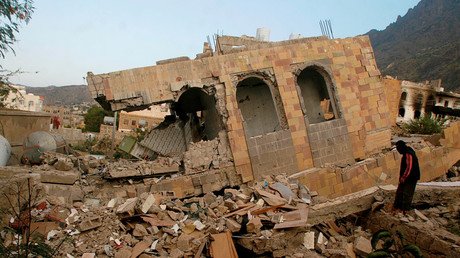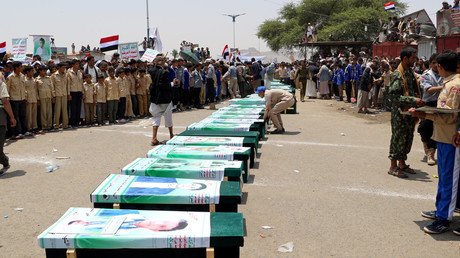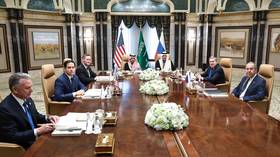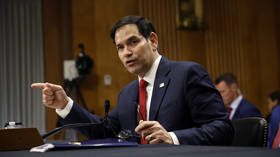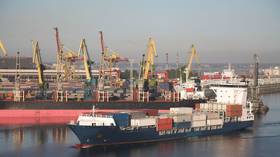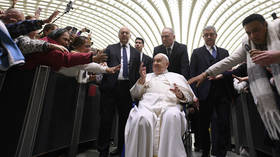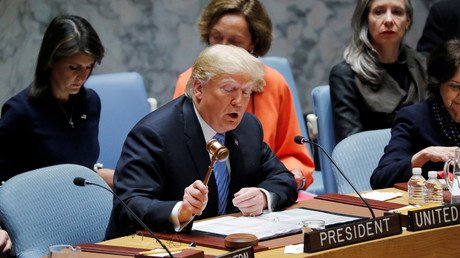'Western-enabled Saudi behavior in Yemen would never survive due democratic scrutiny'
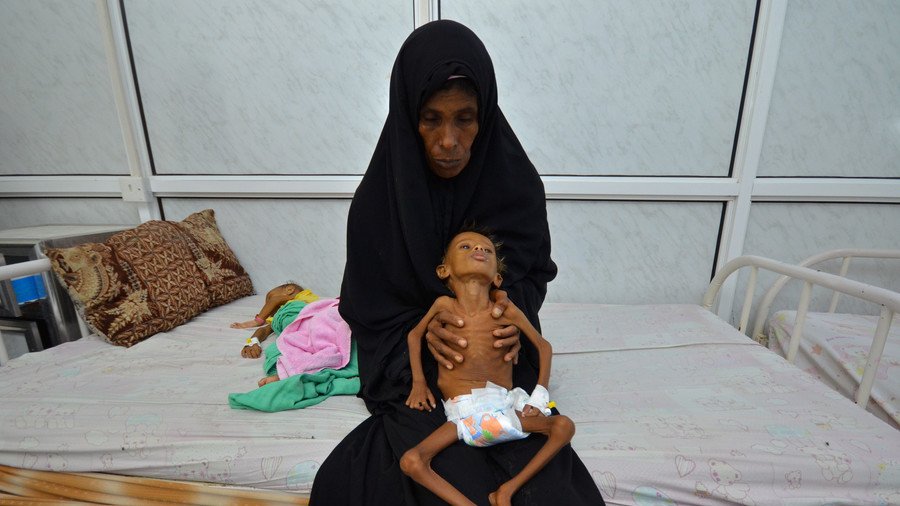
Saudi Arabia feels empowered by the US, UK and France to carry on war in Yemen but if at least one of those countries voted to stop it, democracy would be contagious, Policy Director at Just Foreign Policy Robert Naiman told RT.
On Tuesday, members of the European Parliament (MEPs) are holding a debate in Strasbourg on the situation in Yemen, where a devastating war has been raging since 2015. Thousands of civilians have been killed in airstrikes by Saudi-led military coalition.
Meanwhile, German arms exports to Saudi Arabia since March this year are already close to the level of €254.5 million ($295 million) recorded throughout 2017. This is despite the German government’s coalition agreement not to export arms to countries directly involved in the war in Yemen and strong criticism of the Saudis for their participation in the conflict.
On Monday, Saudi Arabia admitted it had made 'mistakes' in its attacks in Yemen, which has left more than 10,000 civilians dead.
RT discussed the reasons and ways to tackle the war in Yemen which resulted in the world's worst humanitarian crisis, according to UN, with Robert Naiman, Policy Director at Just Foreign Policy who believes that the US, UK and France have enabled Saudi Arabia’s behavior on Yemen.
He noted that those are not only the countries arming Saudi Arabia’s war in Yemen, but they are also prominent members of the UN Security Council. And Britain, in particular, being “a so-called penholder on Yemen at the UNSC,”“abused its role and prevented, together with the US and France, from adopting a resolution on a ceasefire.”
Commenting on recent reports about Spain secretly supporting the Saudi-led intervention by selling laser-guided missiles to Riyadh, Naiman said that Europe overall, and some countries in particular, is complicit in the atrocities in Yemen.
“Sweden of all of countries in Europe in the SC has tried to push back against the US, UK and France to some degree. But there are interests of the arms manufacturers, largest being in the US – 60 to 70 percent of the arms sale to Saudi Arabia come from the US. But English, French, Germans, the Norwegians have historically sold weapons and that is an economic interest. Of course, there are other economic interests in …Saudi Arabia,” Naiman noted.
He recalled that back in August Saudi Arabia kicked out the Canadian ambassador after Dennis Horak made “some mild criticism of the extreme human rights abuses going on in Saudi Arabia."
“Current leadership of Saudi Arabia feels empowered and enabled by the backing from the US, UK and France. The Saudi monarchy arguably always had these kinds of abusive policies but in recent years, particularly under Trump, they have become much more aggressive about carrying out these policies feeling enabled by the US, UK and France: the devastating war and blockade in Yemen, a blockade of Qatar,” Naiman pointed out.
According to the analyst, “the whole concept of the war involves targeting the civilian population.”
“And it is not only me saying this. Senator Chris Murphy has said that the policy of the Saudis is to deliberately starve the civilian population at Yemen,” he argued.
He said this dates back to 2015 when the Saudis were bombing the wastewater treatment plants in Yemen.
In Naiman’s view, the only way to change the current state of affairs is if American Congress takes some action. Just a week ago, he recalled, representatives Ro Khanna of California, Adam Smith of Washington, Mark Pocan of Wisconsin, Thomas Massie of Kentucky, Walter Jones of North Carolina introduced bipartisan action to stop America’s military participation in Saudi Arabia's war against the Houthis in Yemen. This war “is unconstitutional because Congress never authorized it.”
“I believe that if this bill comes to a vote in the House, it will pass,” Naiman told RT.
He suggested that this policy is being allowed to stand because [US] Congress never voted on it and that in Britain or France “this policy would never survive Democratic scrutiny.”
“But we have inside councils that are close to the Saudi regime and want to protect it. Certainly, the CIA in the US has very intimate relationship with the Saudi regime going back decades. So, as long as the policy is in the hands of the people in the CIA and inside councils, I don’t think we should expect any change. We need to force it into public debate, force Congress to debate about it. That is how we are going to end this war,” Naiman claimed.
In 2013, when US President Barack Obama and then British PM James Cameron wanted to bomb Syria, the issue was forced to the British parliament and it voted it down.
Naiman suggested that if there were a vote in the British parliament or “any kind of democratic vote in Britain,” this would possibly stop the war in Yemen.
“If the current government was turned out in an election and replaced by Jeremy Corbyn’s Labour Party, which has been vocal opposing British arms transfers to the Saudi Arabia,” Naiman thinks this would stop this policy “both in terms of the arms transfers and the terms of the British posture at the UNSC.”
Naiman believes that US, UK and France have influence on each other: “If the British government stops, I think that would add tremendously into the pressure on US government to stop as happened in 2013. The Democracy would be contagious.”
“And certainly, if the US government stops, I believe the British and the French will stop. Again as we saw in 2013, the French were willing and not able to go alone without the US... But certainly, out of three the US is the most important and the most powerful and supplying the most weapons,” he concluded.
Like this story? Share it with a friend!

